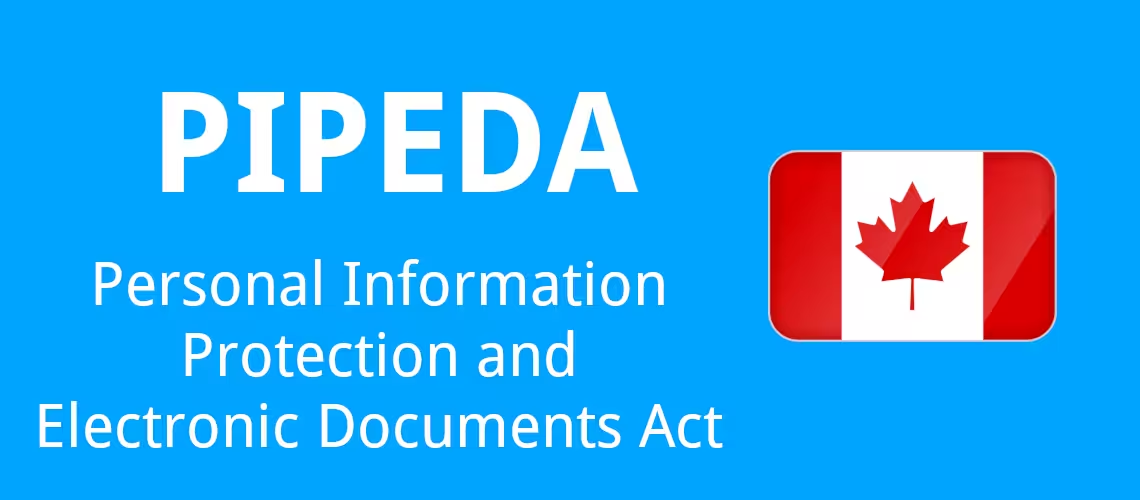In 2000, the Canadian government enacted PIPEDA, a comprehensive legislation aimed at protecting individuals’ personal information in the digital age. As an essential piece of Canadian privacy law, PIPEDA sets out guidelines for private sector organizations to manage and safeguard personal information.

Key Principles
At its core, PIPEDA is built upon eight fundamental principles:
- Accountability: Organizations must designate a Chief Privacy Officer (CPO) or equivalent position responsible for ensuring compliance with PIPEDA.
- Identifying Purposes: Before collecting personal information, organizations must specify their intended use and obtain consent from the individual.
- Consent: Individuals have the right to provide informed consent before an organization collects, uses, or discloses their personal information.
- Limiting Collection: Organizations can only collect personal information necessary for the specified purpose.
- Limiting Use, Disclosure, and Retention: Personal information must be used, disclosed, or retained only as required to fulfill its intended purpose.
- Accuracy: Organizations are responsible for ensuring that the personal information they hold is accurate, complete, and up-to-date.
- Safeguards: Organizations must implement safeguards to protect against unauthorized access, collection, use, disclosure, copying, modification, disposal, or destruction of personal information.
- Openness: Organizations must be transparent about their personal information practices, including how they collect, use, disclose, and retain personal information.
Protections for Individuals
PIPEDA provides several protections for individuals, including:
- The right to access their personal information held by an organization
- The right to request corrections or updates to inaccurate or incomplete personal information
- Protection against the collection, use, or disclosure of personal information without consent
- Recourse mechanisms in case of a breach or misuse of personal information
Exemptions and Applications
PIPEDA contains several exemptions and applications that affect its scope, including:
- Health services (which are governed by provincial health privacy laws)
- Credit reporting agencies
- Law enforcement and security activities
- Public bodies
- Organizations subject to federal legislation or regulations (e.g., the Bank Act)
Provincial privacy laws
Alberta, British Columbia and Quebec have their own private-sector privacy laws that have been deemed substantially similar to PIPEDA. Organizations that are subject to a substantially similar provincial privacy law are generally exempt from PIPEDA with respect to the collection, use, or disclosure of personal information that occurs within that province.
Impact on International Business
As a key component of Canadian law, PIPEDA has implications for international businesses operating in Canada. These companies must comply with PIPEDA’s requirements, including developing policies and procedures that align with its principles.
In conclusion, PIPEDA is an essential piece of Canadian privacy legislation aimed at protecting individuals’ personal information. Its eight fundamental principles provide a framework for organizations to collect, use, disclose, and retain personal information responsibly. As international businesses navigate the complexities of global data protection laws, understanding PIPEDA’s requirements is crucial for operating effectively in Canada.
Information that crosses borders
All businesses that operate in Canada and handle personal information that crosses provincial or national borders in the course of commercial activities are subject to PIPEDA, regardless of the province or territory in which they are based (including provinces with substantially similar legislation).
Federally regulated organizations
Federally regulated organizations that conduct business in Canada are always subject to PIPEDA. The Act also applies to their employees’ personal information.
These organizations include:
- Airports, aircraft and airlines
- Banks and authorized foreign banks
- Inter-provincial or international transportation companies
- Telecommunications companies
- Offshore drilling operations
- Radio and television broadcasters
In relation to trans rights
All personal information must be current and up to date. If a person transitions, organizations are required to use the persons current name and pronouns.
Failing to use the current pronouns and current name of a transgender person may also make an organization liable under Human Rights Code, R.S.O. 1990, c. H.19 (if the person is in Ontario) or the Canadian Human Rights Act (R.S.C., 1985, c. H-6) if the organization is federally regulated.